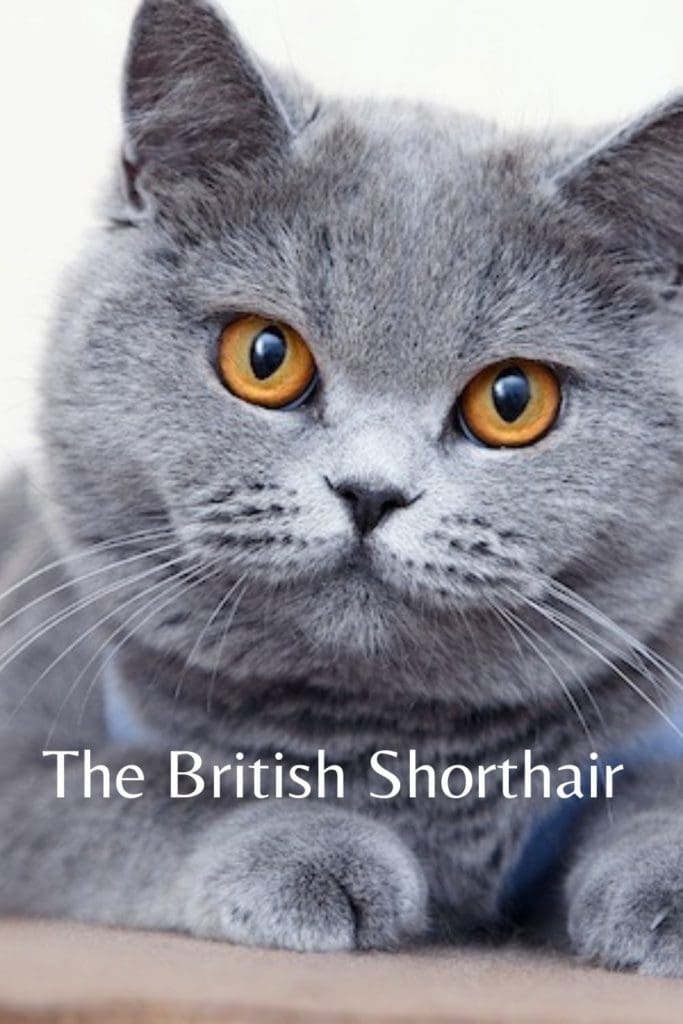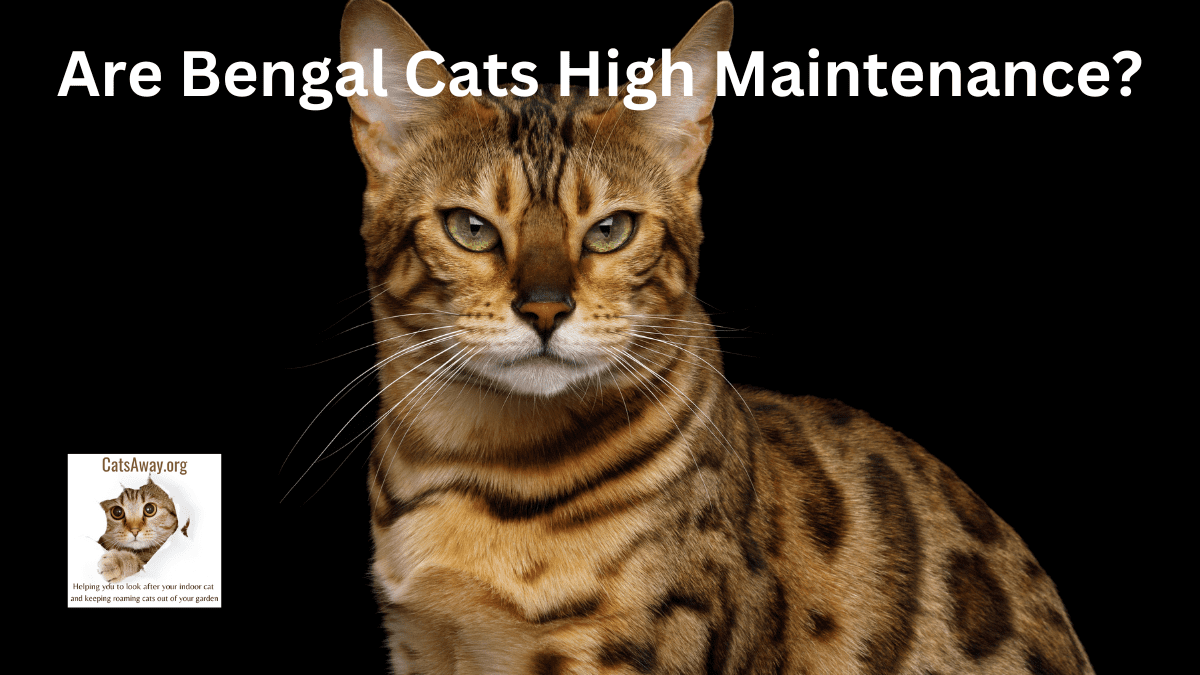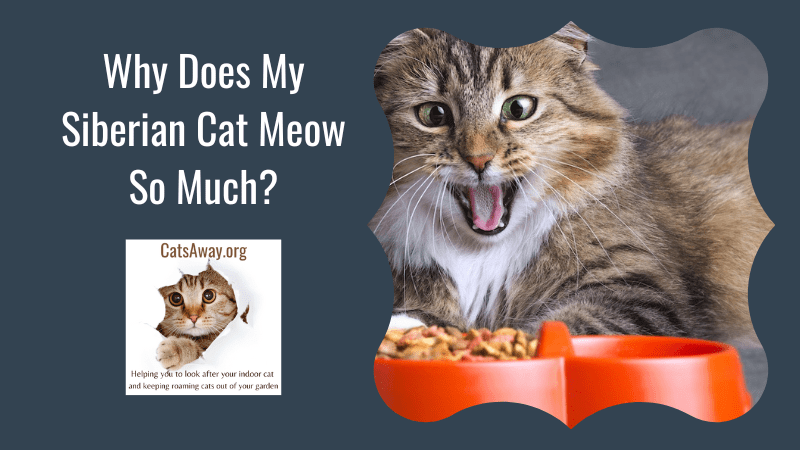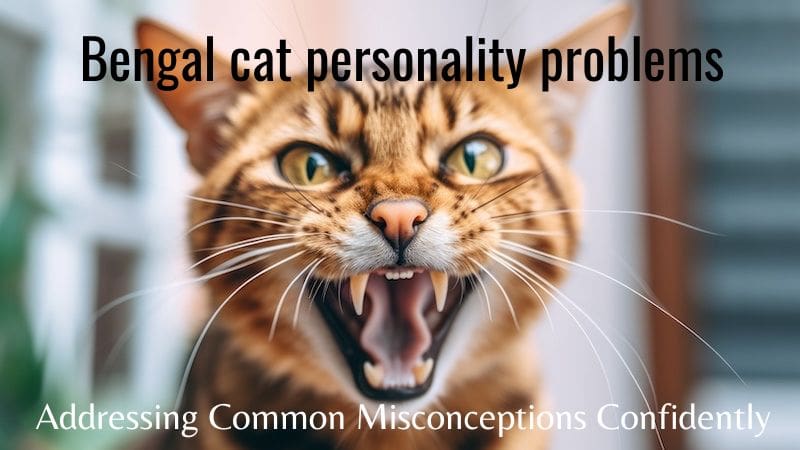The British Shorthair cat is a popular breed of domestic cat known for its round face, sturdy build, and very dense coat. This breed is believed to have originated in England, where it was a popular household pet due to its affectionate and laid-back personality.
Today, the British Shorthair cat is recognized by various cat associations around the world and is a beloved companion for many families.
One of the most distinctive features of the British Shorthair cat is its round face, which gives it a cute and cuddly appearance. This breed is also known for its muscular build, which makes it a powerful and agile hunter.
Despite its physical prowess, the British Shorthair cat is a gentle and affectionate cat that enjoys spending time with its human family.
If you are considering adding a British Shorthair cat to your household, it is important to understand the breed’s characteristics and care requirements. This article hopes to provide you with all you need to know about the beloved British Shorthair cat.
History of the British Shorthair Cat Breed
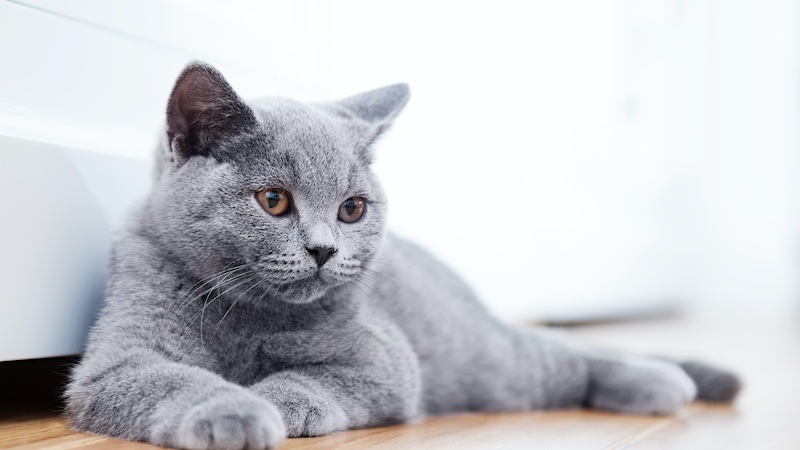
The British Shorthair cat is one of the oldest recognized cat breeds. They are believed to have originated in Great Britain, where they were bred to help control the rodent population. These cats were specifically developed to be strong, healthy, and independent, able to fend for themselves in harsh conditions.
The breed’s popularity grew in the 19th century when Queen Victoria became an avid cat lover and began keeping British Shorthairs as pets. The breed’s distinctive appearance, with its stocky build, dense coat, and broad face, quickly became a favorite among cat enthusiasts.
During World War II, the breed faced a significant decline in numbers due to food shortages and the bombing of breeding facilities. However, after the war, the breed was revitalized through careful breeding programs, and its popularity began to grow once again.
Today, the British Shorthair is one of the most popular cat breeds in the world, renowned for its affectionate and laid-back demeanor, as well as its distinctive appearance.
The breed is recognized by both the International Cat Association and the Cat Fanciers Association and has been featured in movies, television shows, and advertisements.
Physical Characteristics
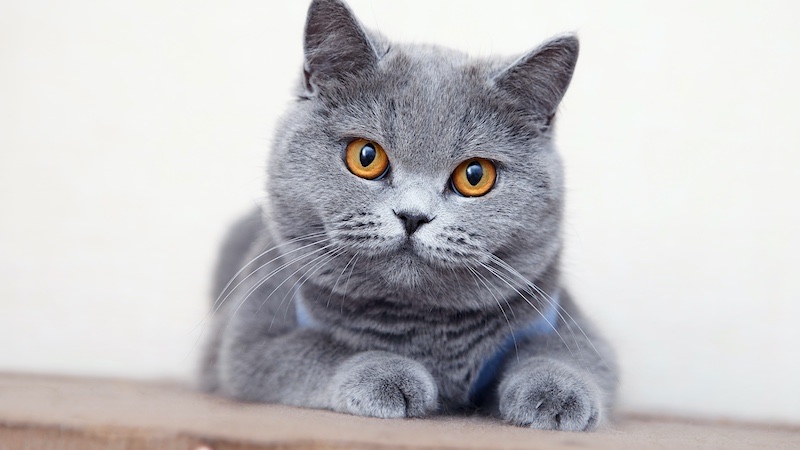
British Shorthairs are known for their distinctive physical characteristics. They have a compact, well-balanced, and powerful body. Females are slightly smaller than males.
Hallmarks of this popular pedigree cat include broad chests and round heads with chubby cheeks, a firm chin, medium-sized ears, and large, round eyes.
Coat and Color
The British Shorthair’s coat is short and dense, with a plush texture that is often described as crisp. It is thick and waterproof, which helps to protect the cat from the elements. The coat comes in a variety of colors and patterns, including solid colors like blue, black, white, and cream, as well as tabby, tortoiseshell, and bi-color patterns.
The most desirable color is the British blue, which is a solid gray-blue color. However, the breed also comes in other colors, such as black, white, cream, and red.
Size and Weight
The British Shorthair is a medium-to-large-sized cat, with males typically weighing between 9 and 17 pounds, and females weighing between 7 and 12 pounds. They have a broad chest, muscular neck, strong jaws, and a well-developed muzzle. The legs are thick and strong, and the paws are large and round.
Despite their size, British Shorthairs are not particularly active cats, and they tend to prefer lounging around the house to running and playing. However, they do require regular exercise to maintain their health and prevent obesity.
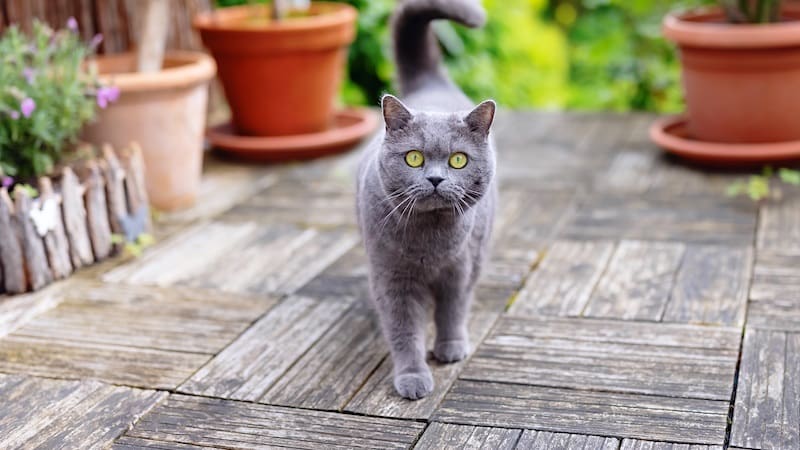
Does The British Shorthair Make a Good Indoor Cat?
British Shorthair cats are known for their calm and laid-back personality, which makes them great indoor cats. They enjoy lounging around and napping in their favorite spots for hours. However, it is important to ensure that they receive proper nourishment and exercise to maintain their health and well-being.
British Shorthair Personality
British Shorthair cats are known for their sweet and affectionate personality. They are not clingy or needy and are happy to spend time alone. They are also known for being quiet and not overly vocal, which makes them great apartment cats. They are friendly and get along well with children and other pets.
Are British Shorthairs Hypoallergenic?
Unfortunately, the British Shorthair’s are not hypoallergenic. They do shed, and their fur can trigger allergies in some people. However, regular grooming and cleaning can help reduce the amount of hair and dander in the home.
Health and Care
The British Shorthair cat breed is generally healthy with the UK Breed Committee giving a median lifespan of 17 years (life expectancy between 14 and 20 years).
However, like all animals, they require proper care and attention to maintain their health and well-being. In this section, we will discuss some of the common health issues, grooming and maintenance, as well as nutrition and exercise needs of the British Shorthair cat.
Common Health Issues
The most common health issues that affect the British Shorthair cat breed include:
Heart muscle disease, specifically hypertrophic cardiomyopathy
Dental problems, such as tooth decay and gum disease
Bladder stones
Weight gain, which can lead to other health problems
Joint problems, such as hip dysplasia
Respiratory problems, such as asthma
Grooming and Maintenance
British Shorthair cats have a short, dense coat that requires only minimal grooming. However, regular grooming is still important to keep their coat healthy and shiny. Brushing their coat once a week will help remove loose hair and prevent matting. Additionally, it is important to trim their nails regularly and clean their ears to prevent infections.
Nutrition and Exercise
British Shorthairs are prone to obesity, so it is important to feed them a balanced diet with food specifically for indoor cats and provide them with regular exercise. A high-quality, protein-rich diet is recommended, and it is important to avoid overfeeding.
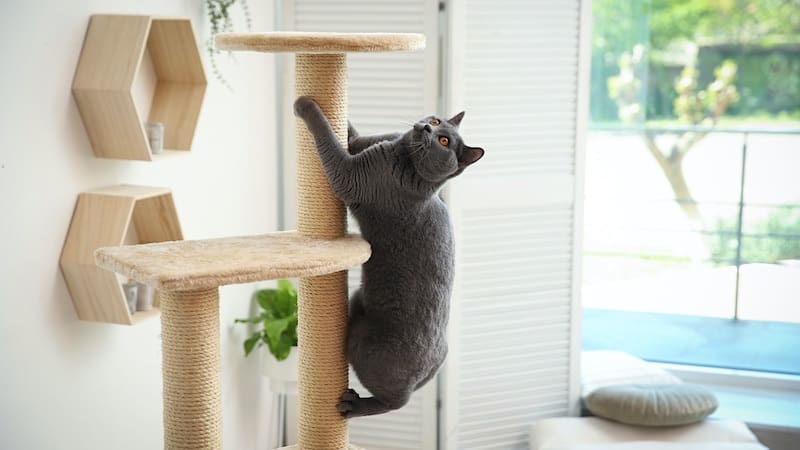
Additionally, providing your pet with toys and cat trees to provide opportunities to play and climb will help keep them active and healthy. Investing in an exercise wheel like the one below is the perfect way to keep your indoor cat fit and prevent weight gain.
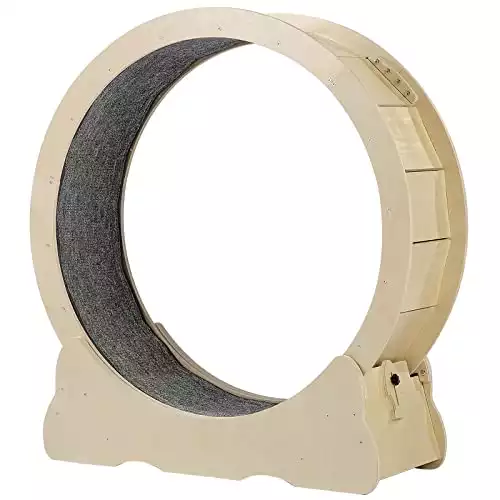 AURGOD Cat Exercise Wheel
AURGOD Cat Exercise Wheel
This is similar to the SMART HACK but slightly narrower. It's sturdy and easy to assemble, making it a worthwhile investment for your furry friend.
Comes in 2 sizes - Get the extra large for cats over 15lbs and regular for under.
- The installation process is easy and straightforward, and the instructions are clear enough to follow without any hassle.
- The cat exercise wheel is made of high-quality solid wood multilayer boards, which is compact in structure and very durable.
- The wheel isn't the quietest when in use
FAQ
Are British Shorthair cats cuddly?
The British Shorthair cat is generally friendly and affectionate, but they may not necessarily be lap cats or enjoy being held and cuddled for long periods of time. This is because of their thick coat which together with the heat from your lap, soon makes them uncomfortable.
They tend to express their affection in more subtle ways, such as following their owners around or lying down next to them.
Do British Shorthairs Shed?
Yes, British Shorthairs do shed. They have a dense, short coat that requires regular grooming to keep it healthy and shiny. Brushing their coat once or twice a week can help reduce shedding and prevent matting. It is also important to keep their nails trimmed and teeth clean to maintain their overall health.
How long do British Shorthair cats live?
The average lifespan of a well-cared-for indoor British Shorthair cat is between 14 and 20 years, with the median lifespan being between 17 years. However, some British Shorthairs can live into their late teens or even reach 20 years of age. The lifespan of a British Shorthair cat can be influenced by various factors, such as genetics, diet, exercise, and overall health.
It’s also important to understand that the life expectancy of indoor cats is as much as 4 times that of a cat free to roam.
Does the British Shorthair cat meow a lot?
British Shorthairs generally do not meow too much, and their meows are not too loud. They generally only meow when they want to communicate with their owners such as when wanting food. (Source)
When do British Shorthair kittens calm down?
British Shorthair kittens typically start to calm down at around 6-12 months of age, which is when they start to mature physically and mentally. They will have most of their adult teeth and will be fully weaned from their mother.
At this age, they also start to become more independent and less hyperactive. Once they reach adulthood, they will be calm, relaxed cats. (source)
Does the British Shorthair cat scratch furniture?
British Shorthairs, like all cats, have an instinctual need to scratch and may scratch furniture and other items to some extent. However, they are generally considered to be less destructive and less likely to scratch furniture than some other breeds of cats.
To prevent unwanted scratching cat behavior, it is recommended to provide British Shorthairs with appropriate scratching posts.
How much do British Shorthairs cost?
The price of a British Shorthair cat can vary depending on various factors such as breeder reputation, coat color, and demand. On average, the cost of a British Shorthair cat ranges from $1,500 to $2,400. However, British Shorthairs for show may cost more, with a price range between $2,200 and $3,000.
Blue British Shorthairs, the most popular and in demand British Shorthair cat color, have a price range between $2,000 and $5,000 if the cat is for breeding or showing.
The cost of owning a British Shorthair cat also includes monthly expenses such as food, medical care, and litter, which can range from $60 to $630 per month depending on the cat’s needs and preferences.
Do British Shorthair cats smell?
British Shorthairs do not have a particularly strong or unpleasant odor. Like all cats, they do have a natural scent, but it is generally not noticeable unless the cat is not groomed regularly or has an underlying health issue.
The British Shorthair cat is known for its dense, plush coat, which may require more frequent grooming than some other breeds to prevent matting and shedding.
Regular brushing and bathing, as well as keeping the litter box clean, can help prevent any unwanted odors.
Conclusion
The British Shorthair is a wonderful breed of cat that has been around for centuries. They are known for their friendly and laid-back personalities, making them great pets for families with children or other pets. Their stocky build and round faces make them easily recognizable, and their thick fur is soft and plush to the touch.
One of the great things about British Shorthairs is that they come in a variety of colors, from classic blue to black, white, cream, and more. They are also known for their longevity, with many living well into their teens and even twenties with proper care and attention.
If you are considering adding a British Shorthair to your family, it is important to do your research and find a reputable breeder or rescue organization. While they are generally healthy cats, they can be prone to certain health issues like obesity and heart disease, so regular check-ups with a veterinarian are essential.
Overall, the British Shorthair is a beloved and popular breed for good reason. With their sweet personalities, adorable looks, and long lifespan, they make wonderful companions for anyone looking for a feline friend.

